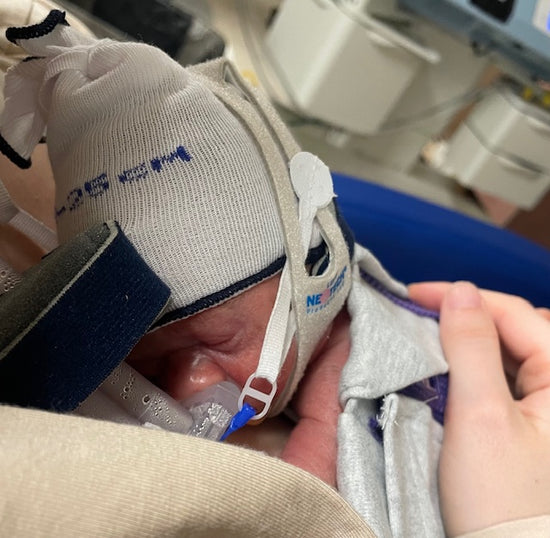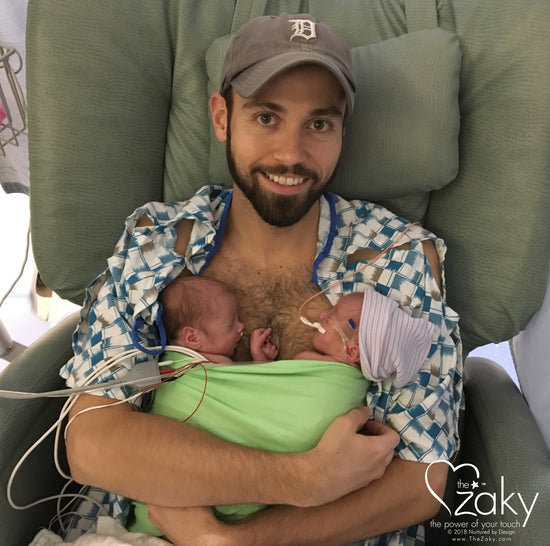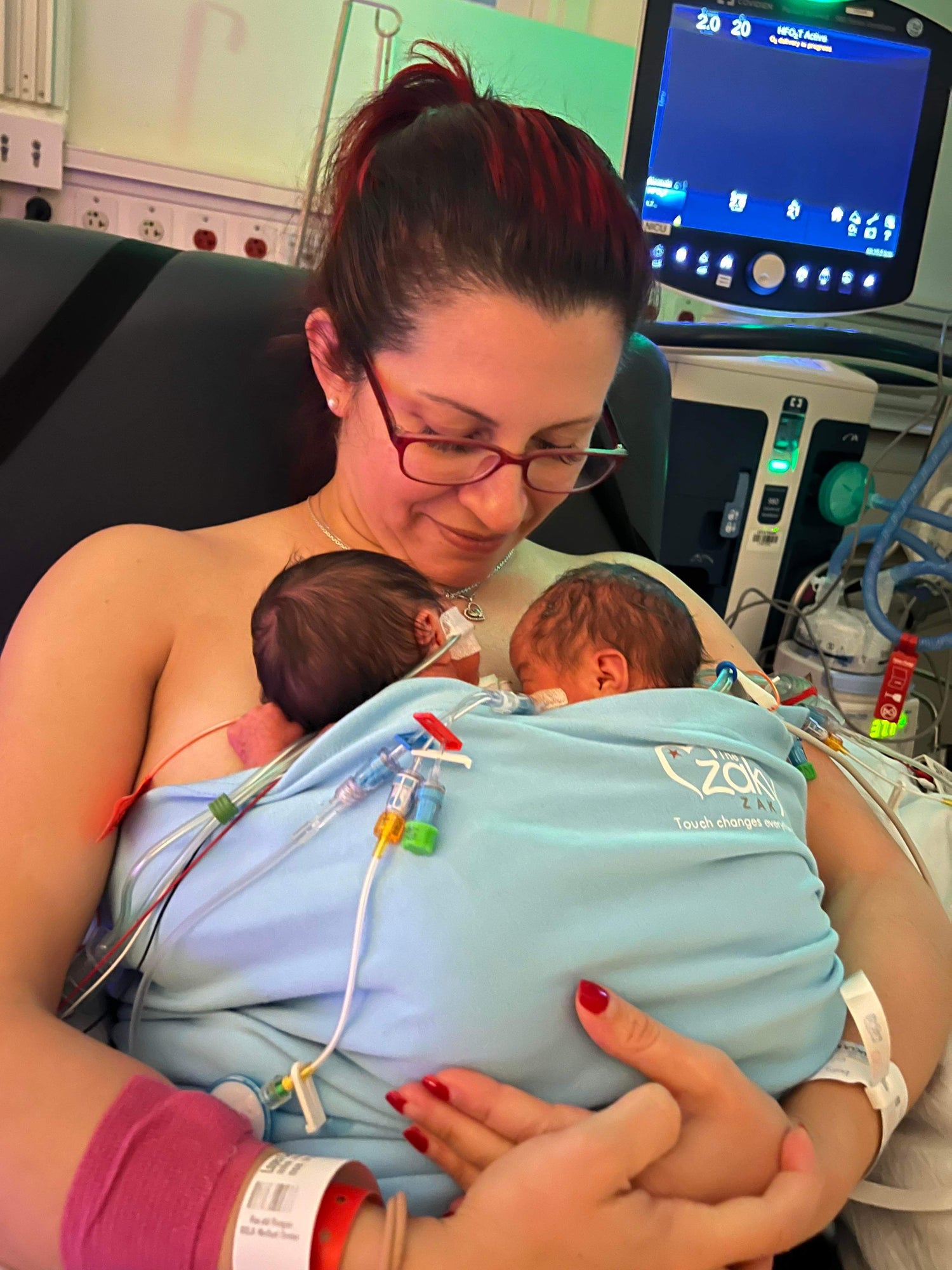
Summary:
Independent studies that used The Zaky ZAK® demonstrate its effectiveness in improving duration, frequency, and parent satisfaction in the NICU.
Key findings include enhanced cognitive and autonomic development, improved neurophysiological outcomes, increased parental confidence, and a reduction in unplanned extubations.
The Zaky ZAK® is instrumental in promoting skin-to-skin contact, reducing stress, and supporting the release of oxytocin in infants, which contributes to better neurobehavioral patterns.
These studies emphasize the importance of providing safety and immediate, quiet access while holding infants in neonatal and developmental care settings.
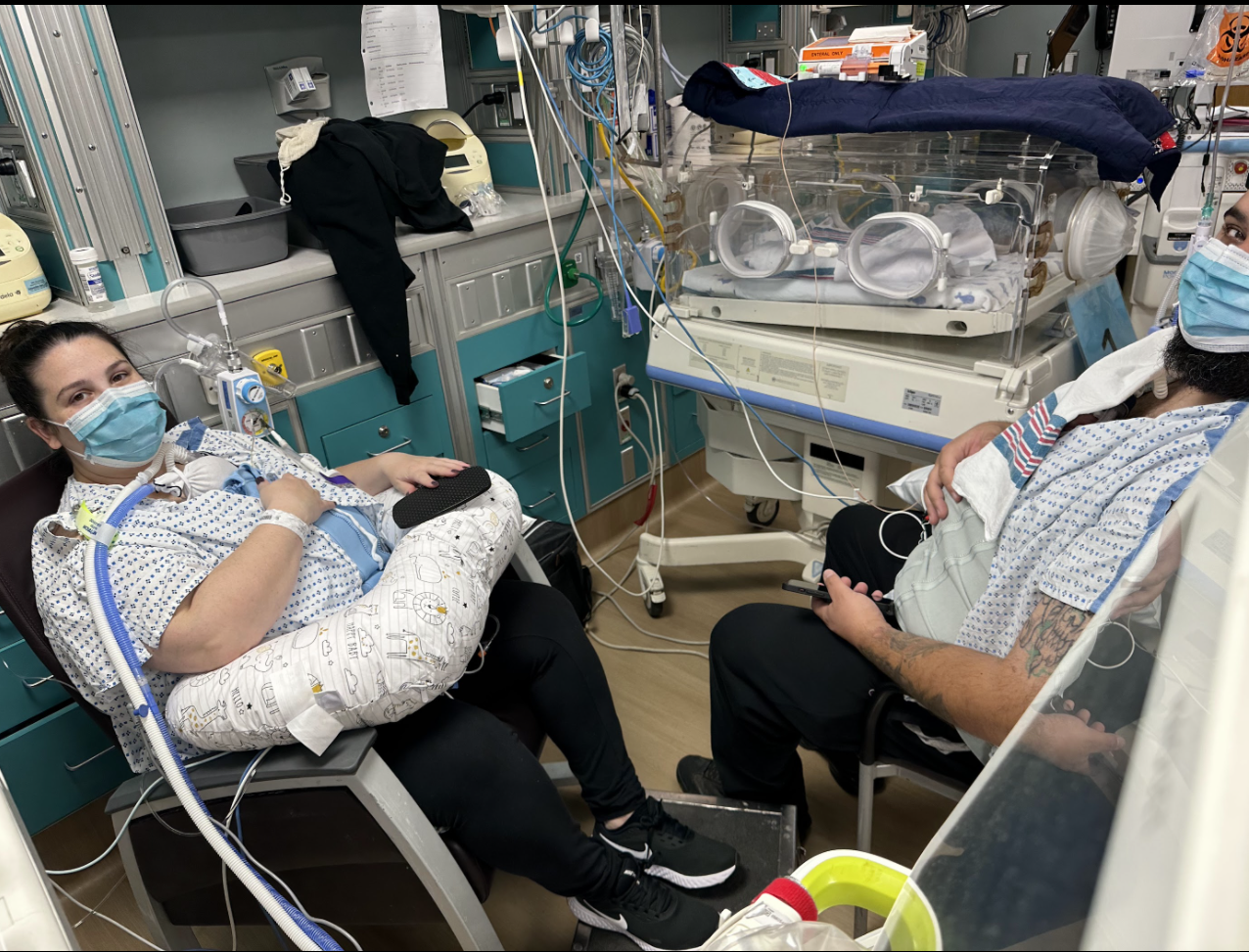
Implications for Learning and Autonomic Nervous System Function in Infants With Critical Congenital Heart Disease (CCHD)
Tondi M. Harrison, PhD, RN, FAAN, Chao-Ying Chen, PhD, MS, PT, Phyllis Stein, PhD, Roger Brown, PhD, and Jill C. Heathcock, MPT, PhD.
Conclusions:
Findings suggest improvements in cognitive and autonomic development in 3-month-old infants with CCHD who received neonatal Skin-to-Skin-Care.
Learning and autonomic function results in infants with CCHD who had not received SSC suggest reduced capacity to muster the physiologic resources to carry out this cognitive task. Findings provide preliminary evidence in support of implementation of SSC with infants with CCHD and support additional research.
Every mom/baby dyad used The Zaky ZAK® (previously known as Kangaroo Zak®) during skin-to-skin contact sessions, as acknowledged and described on page 3 of the paper.
Biological Research For Nursing. 2019;21(3):296-306. doi:10.1177/1099800419827599
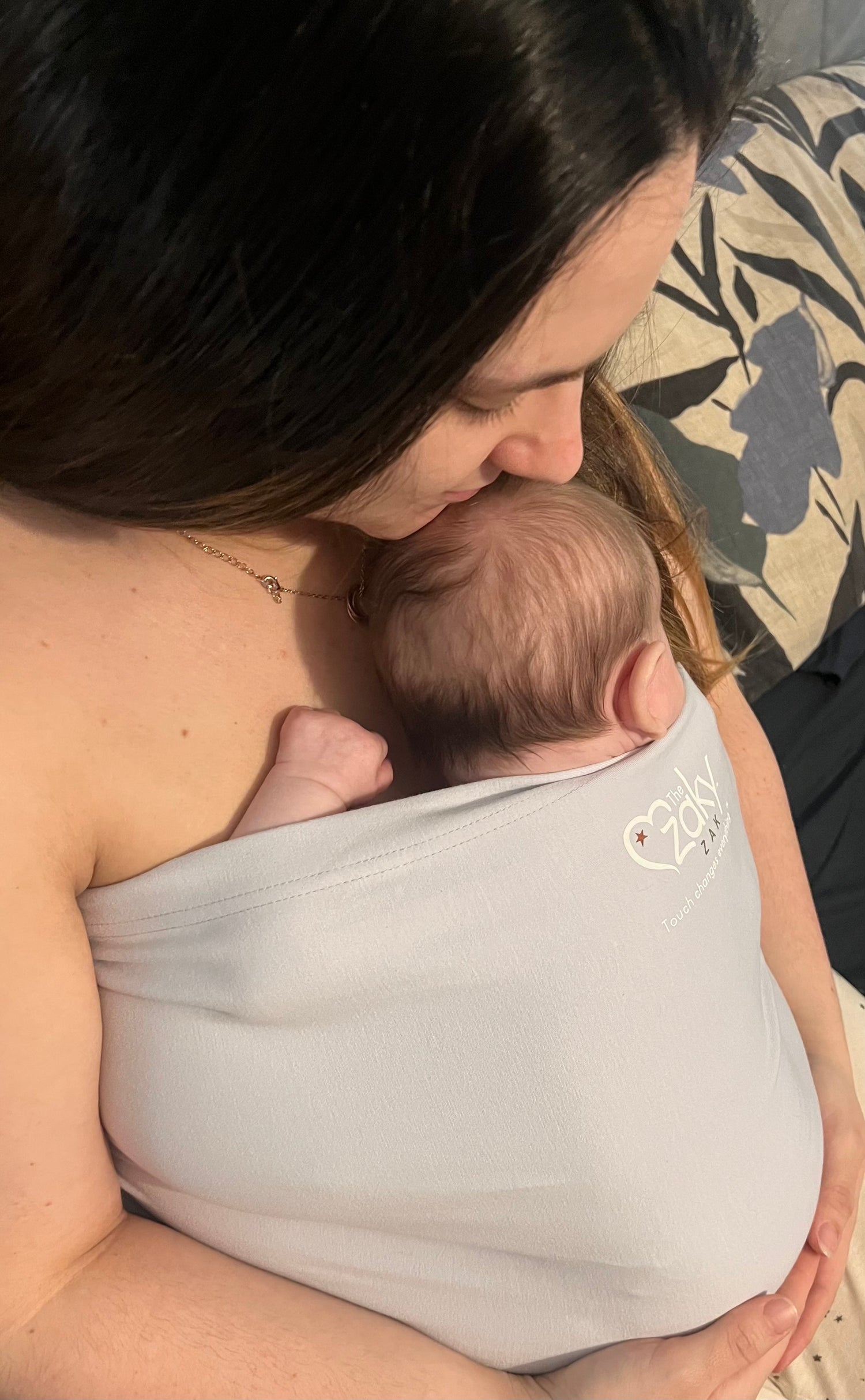
Randomized control trial
"Parent-Training with Kangaroo Care [with The Zaky ZAK®] Impacts Infant Neurophysiological Development & Mother-Infant Neuroendocrine Activity":
by Jillian S. Hardin, Nancy Aaron Jones, Krystal D. Mize, Melannie Platt
Findings suggest Kangaroo Care may garner favorable neuro-maturational and neurobiological outcomes for dyads.
Full-term (> 37 weeks GA) babies and mothers that were assigned to the Kangaroo Care Group were given The Zaky ZAK® (Kangaroo Zak®.)
Kangaroo Care Implementation in Multiple NICUs [with The Zaky ZAK®] - Published Quality Improvement Project
The Sobreviver Project (Survive)
By Mary Coughlin, RN, MS, NNP, Caring Essentials Collaborative, LLC. Boston.
Every mother was provided a The Zaky ZAK® (aka Kangaroo Zak) in this Quality Improvement Project and Mary Coughlin. In the video she explains why. Below is a tribute to the project.
Newborn and Infant Nursing Reviews Volume 15, Issue 4, December 2015, Pages 169-173
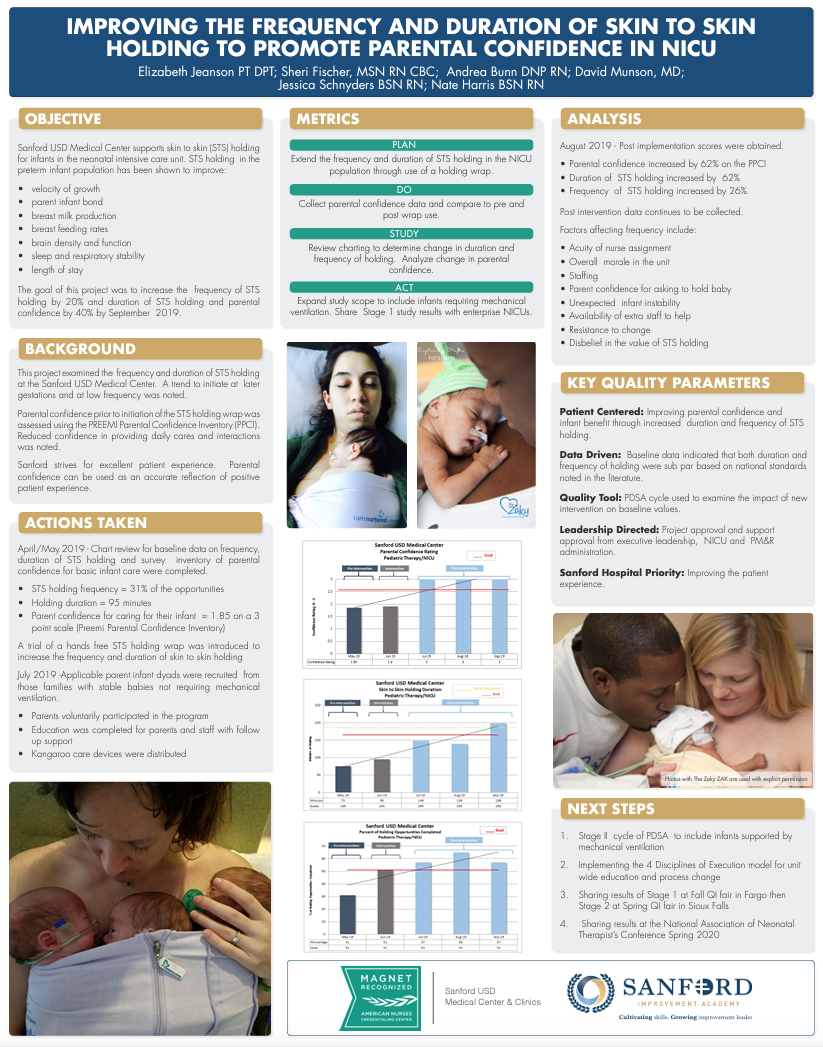
"Improving The Frequency And Duration Of Skin To Skin Holding [with The Zaky ZAK®] To Promote Parental Confidence In NICU"
by Elizabeth Jeanson PT DPT; Sheri Fischer, MSN RN CBC; Andrea Bunn DNP RN; David Munson, MD; Jessica Schnyders BSN RN; Nate Harris BSN RN
Sanford Improvement Academy selected The Zaky ZAK® as part of their Kangaroo Care implementation. The goal was to improve parent confidence, duration, and frequency by 20%.
Here are the results:
• Parental confidence increased by 62% on the PPCI
• Duration of STS holding increased by 62%
• Frequency of STS holding increased by 26%
Quality Improvement Project:
Prevent Unplanned Extubations during Kangaroo Care in the NICU.
Unplanned extubations during kangaroo care is now a preventable injury during kangaroo care with The Zaky ZAK® (aka Kangaroo Zak) at Children's Hospital of Atlanta (CHOA)
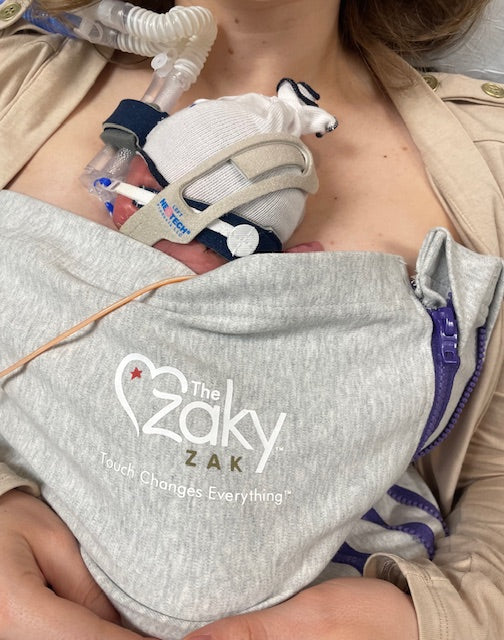
"Release of Oxytocin and Cortisol Is Associated With Neurobehavioral Patterns in Premature Infants"
by Dorothy Vittner, Amy D’Agata, Byeong Yeob Choi, and Jacqueline McGrath
Published:March 22, 2023PMID: 36965512
DOI: 10.1016/j.jogn.2023.03.001
(The Zaky ZAK® was used to hold infants in skin-to-skin/kangaroo care during this study)
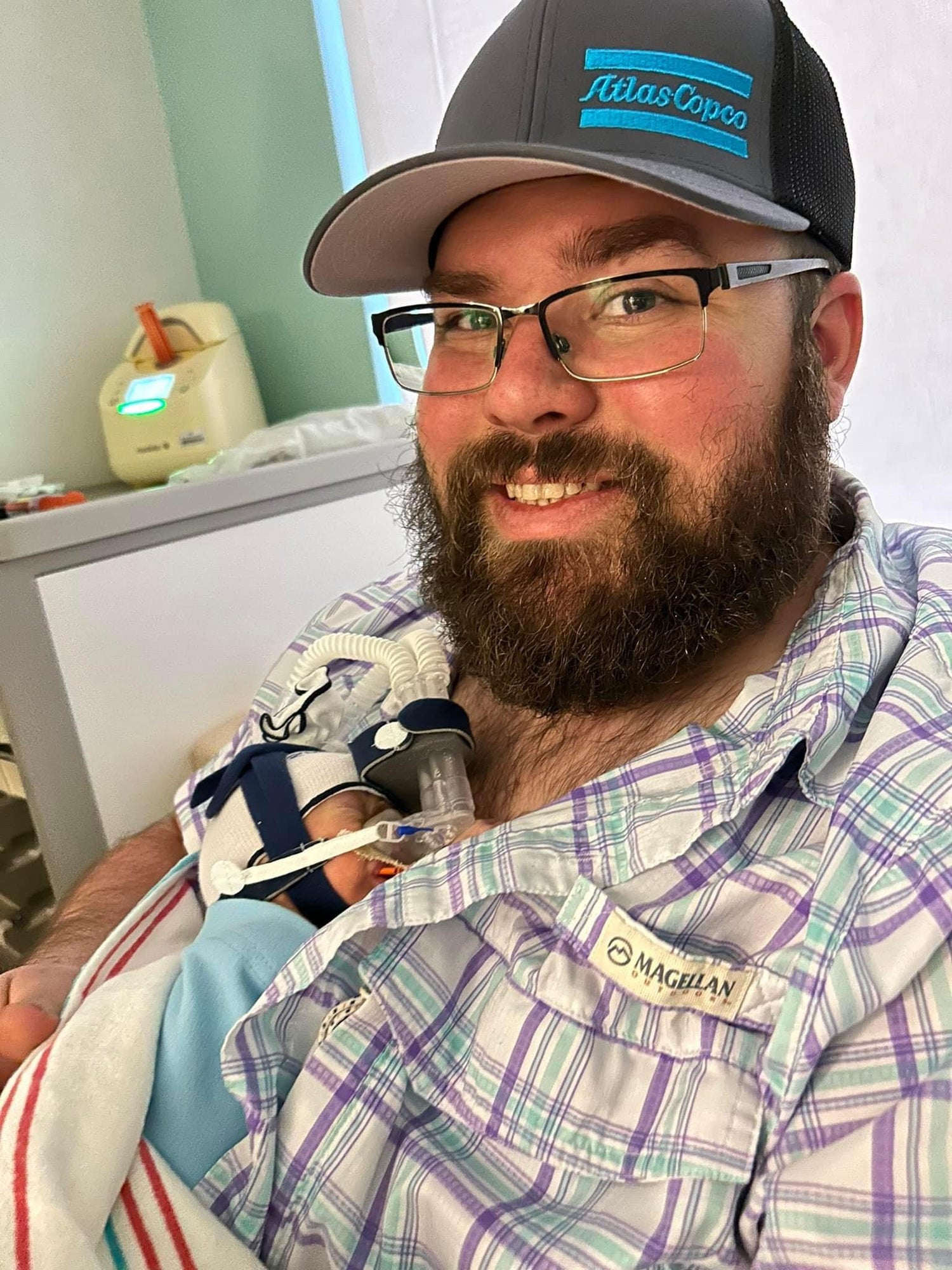
"The Safety of Body Wraps on Skin-to-Skin Care in the Neonatal Population"
A Pilot Study
Allison Freccero, Melissa Scala, Kelly Andrasik McLeod, Bridgette Donahue, Macey Webb, Michelle Briggs, Ivette Najm, Monica Sinha, Lauren Santagata, Alex Dahlen, Annette Nasr
Adv Neonatal Care 2024 Feb 1;24(1):E11-E19.
doi:10.1097/ANC.0000000000001133.Epub 2023 Dec 21.

